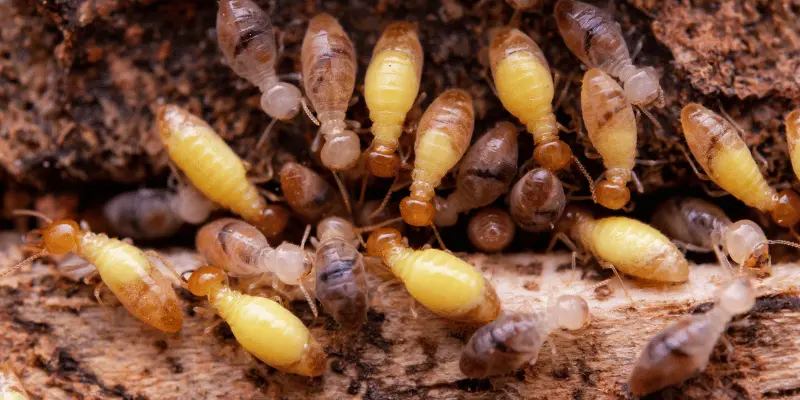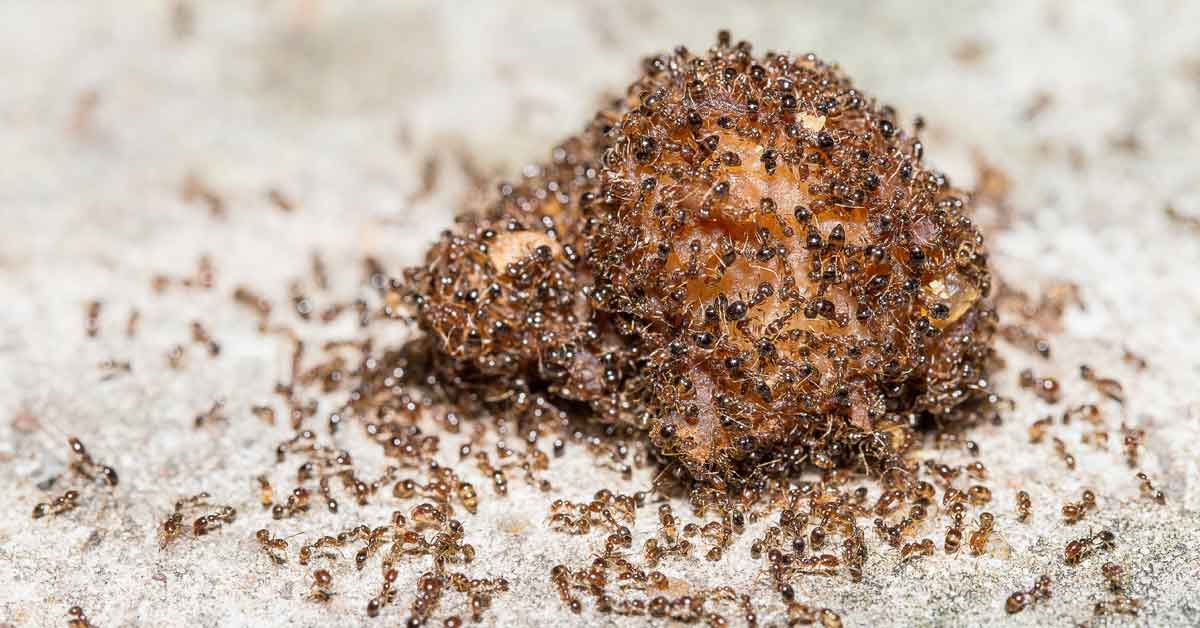Cost Effective Ant Control Solutions: Keep Your Area Ant-Free
Cost Effective Ant Control Solutions: Keep Your Area Ant-Free
Blog Article
Ecological Effect of Insect Control: Balancing Performance With Sustainability
The ecological effect of insect control is a critical issue that calls for a fragile balance between accomplishing performance in making sure and handling bugs sustainability of our communities. From the use of unsafe chemicals that permeate right into our dirt and water to the unexpected effects on non-target species, the repercussions of traditional bug control techniques are significant.
Hazardous Chemicals in Bug Control
The usage of damaging chemicals in insect control postures considerable environmental and health threats that warrant mindful consideration and mitigation techniques. Herbicides, insecticides, and pesticides are frequently made use of to remove pests, yet their widespread application can result in unplanned effects. These chemicals can pollute soil, water resources, and the air, affecting not just the targeted bugs yet likewise useful insects, wild animals, and people.

To address these dangers, integrated bug monitoring (IPM) techniques are being promoted as a more sustainable option. IPM includes a mix of techniques such as organic control, environment adjustment, and the targeted use pesticides as a last option (ant control kingsmountain nc). By embracing a holistic technique to pest control, we can minimize the ecological and health and wellness influences connected with harmful chemicals while successfully handling pest populations
Effect On Non-Target Variety
Taking into consideration the unintended consequences of parasite control techniques, the effect on non-target species is an essential facet that calls for thorough evaluation. While bug control procedures intend to target details parasites, various other microorganisms in the environment may be unintentionally influenced. Non-target species, consisting of beneficial bugs, birds, animals, and even plants, can suffer indirect or straight injury from pesticide applications or organic control methods.
Pesticides can have sub-lethal or deadly effects on non-target varieties. As an example, pesticides developed to fight a certain bug parasite might harm pollinators like bees or all-natural predators such as ladybugs. In addition, chemical deposits can collect in the environment, influencing non-target organisms over time. Organic control agents, if not species-specific, can posture threats to unintended targets, interrupting the environmental equilibrium.
To reduce the effect on non-target types, integrated parasite management (IPM) approaches that highlight a holistic strategy to pest control are recommended. These approaches focus on the usage of ecologically pleasant techniques, decreasing injury to valuable microorganisms while effectively handling pest populaces. Performing complete danger evaluations and monitoring the results of parasite control initiatives are crucial action in securing non-target species and promoting general ecosystem wellness.
Soil and Water Contamination
Unexpected ecological effects of pest control methods extend past affecting non-target species, with substantial effects for dirt and water contamination - ant control. Chemicals, herbicides, and chemical plant foods utilized in pest control can seep into the dirt and infect groundwater, posing a danger to both aquatic and earthbound ecosystems.
Water contamination is one more essential problem related to parasite control techniques. Drainage from look at here farming fields treated with chemicals can carry these chemicals right into neighboring water bodies, influencing water organisms and water top quality. Impurities in water sources can have far-reaching repercussions, influencing not only aquatic life but additionally human health and wellness via the usage of polluted water or marine organisms. To reduce soil and water contamination from pest control activities, incorporated bug monitoring methods that prioritize sustainability and decrease chemical inputs are essential.
Air Air Pollution From Pesticide Use
Direct exposure to air-borne pesticides throughout farming applications poses a substantial problem for air contamination control actions. When pesticides are splashed onto crops, they can volatilize into the air and kind unstable natural compounds (VOCs) and other airborne pollutants. These chemicals can contribute to the formation of ground-level ozone, a major component of smoke that can have destructive effects on human health and wellness, crop performance, and general air top quality. In addition, pesticide drift, where chemicals are carried by the wind to unintended locations, can result in the contamination of close-by environments and water bodies.

Strategies for Lasting Insect Control
In the realm of agricultural practices, applying sustainable insect control methods is vital for keeping ecological balance and protecting crop returns. Lasting parasite control emphasizes the usage of eco-friendly methods to take care of pest populations effectively while reducing damage to non-target organisms and ecological communities. Integrated Pest Monitoring (IPM) is a widely taken on strategy that combines organic, social, physical, and chemical control methods to accomplish long-lasting bug management remedies.
One secret technique in lasting parasite control is promoting biodiversity within agroecosystems. By boosting natural opponents of insects, such as parasitoids and killers, farmers can reduce the demand for synthetic pesticides. Plant rotation and diversification are additionally reliable methods to interfere with pest life process and develop less desirable problems for insects to thrive. Additionally, making use of pest-resistant plant ranges and utilizing techniques like catch chopping can aid reduce pest stress without counting greatly on chemical treatments. Eventually, by integrating these sustainable parasite control methods, farmers can accomplish a balance in between pest monitoring efficiency and environmental stewardship.
Verdict
To conclude, the ecological impact of insect control methods have to be thoroughly taken into consideration to balance efficiency with sustainability. Damaging chemicals used in parasite control can cause dirt and water contamination, air pollution, and damage non-target varieties - termite control services. It is crucial to implement lasting pest control techniques to minimize these negative results on the environment and promote a healthier environment for future generations
By embracing a holistic approach to pest control, we can decrease the environmental and health effects connected with harmful chemicals while effectively handling pest populations.

To minimize the air pollution triggered by pesticide usage, it is necessary to take on incorporated bug management techniques that prioritize the usage of non-chemical bug control techniques, such as plant turning, all-natural killers, and immune crop ranges. Lasting parasite control emphasizes the usage of ecologically friendly methods to manage bug populaces efficiently while minimizing harm to non-target organisms and ecological communities. Integrated Parasite Administration (IPM) is a widely embraced approach that combines organic, cultural, physical, and chemical control methods to attain long-lasting bug monitoring services.
Report this page